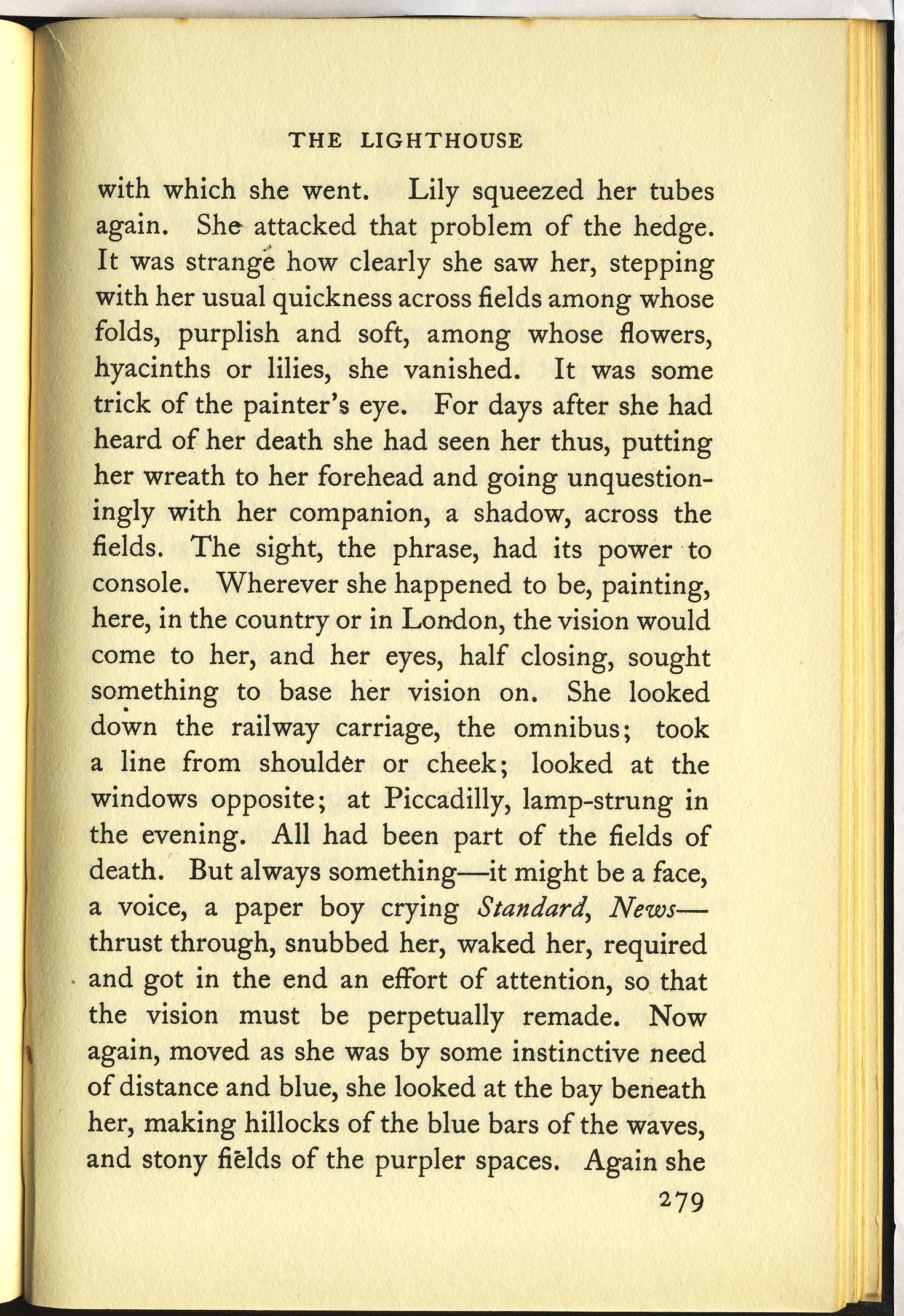
THE LIGHTHOUSEwith which she went. Lily squeezed her tubesagain. She attacked that problem of the hedge.It was strange how clearly she saw her, steppingwith her usual quickness across iields among whosefolds, purplish and soft, among whose Howers,hyacinths or lilies, she vanished. It was sometrick of the painter’s eye. For days after she hadheard of her death she had seen her thus, puttingher wreath to her forehead and going unquestioningly with her companion, a shadow, across thefields. The sight, the phrase, had its poweretoconsole. Wherever she happened to be, painting,here, in the country or in London, the vision wouldcome to her, and her eyes, half closing, soughtsomething to base her vision on. She lookeddown the railway carriage, the omnibus; tooka line from shoulder or cheek; looked at thewindows opposite; at Piccadilly, lamp-strung inthe evening. All had been part of the fields ofdeath. But always something—it might be a face,a voice, a paper boy crying Standard, Newsthrust through, snubbed her, waked her, requiredand got in the end an effort of attention, so thatthe vision must be perpetually remade. Nowagain, moved as she was by some instinctive needof distance and blue, she looked at the bay beneathher, making hillocks of the blue bars of the waves,and stony fields of the purpler spaces. Again she279









